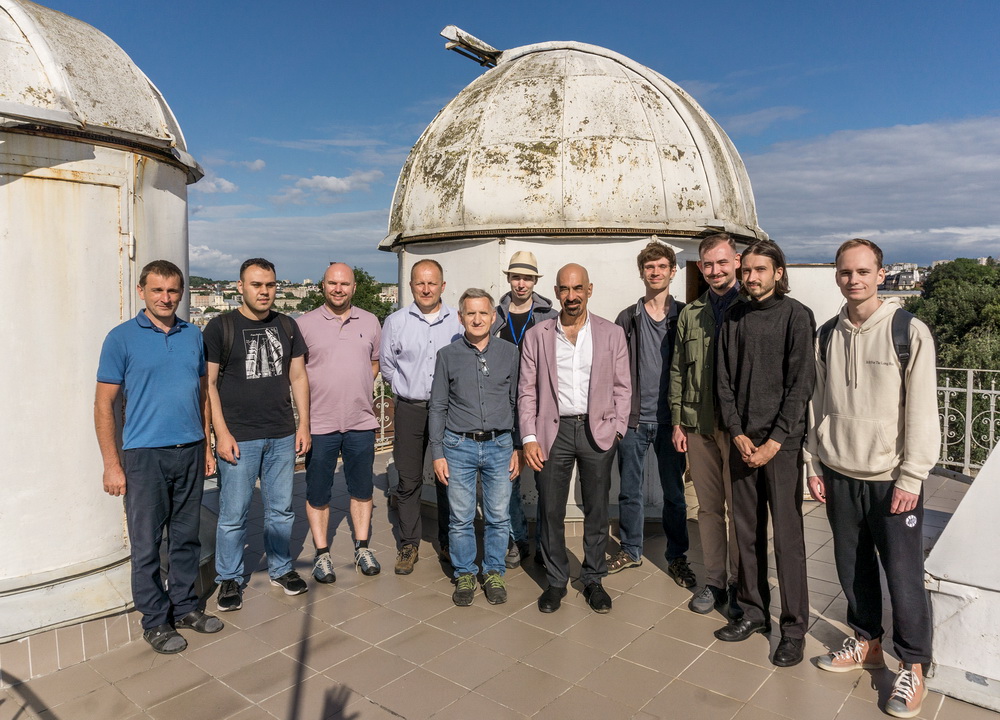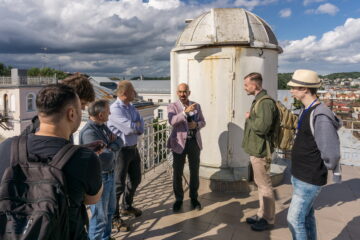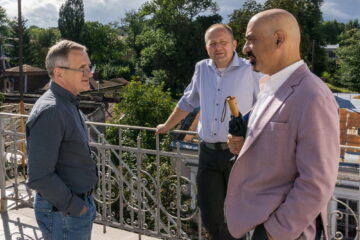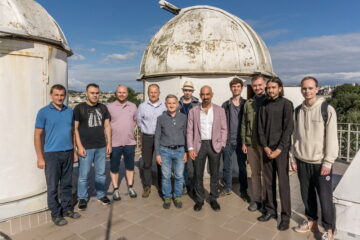
On August 8, 2023, David N. Spergel, an American astrophysicist, cosmologist, Princeton University professor and President of the Simons Foundation, visited the Astronomical Observatory of the Ivan Franko National University of Lviv. He was the lead theorist on the Space Observatory’s Wilkinson Microwave Anisotropy Map (WMAP) project, designed to measure temperature fluctuations in relict radiation. This observatory has been scanning the sky with a resolution of 20 minutes for nine years. For the first time, it has constructed a map of the temperature fluctuations of the radiation of the whole sky. The results of this project became a breakthrough in cosmology – the second release of observational data in 3 years of observations ushered in the era of precision cosmology.
David Spergel has awarded many scientific honours, including the Shao Prize (2010), the Danny Heidemann Prize in Astrophysics (2015), the Gruber Prize in Cosmology (2015), and the Prize in Fundamental Physics (2018), which is the largest in the scientific world. Currently, Professor Spergel is engaged in dark matter research and modelling equipment for the search for exoplanets. Employees of the Astronomical Observatory know his work and quote it on their own. In addition, since 2019, David Spergel has been the president of the Simons Foundation, one of the largest American foundations supported by American and world scientists. Accordingly, the Simons Foundation takes care of the arxiv.org site which is known to every physicist and astronomer, and in recent years has also funded Ukrainian scientists.
During the conversation, scientists of the Astronomical Observatory and David Spergel discussed ways and opportunities for cooperation. Thus, the Ivan Franko University scientists told the Americans about their latest research in the field of cosmology and the large-scale structure of the universe. As it turned out, even the Atlantic Ocean between Ukrainian and American scientists does not respect them much in common. For example, the team of the Astronomical Observatory under the leadership of the director has been using the mathematical methods of Monte Carlo Markov Chains (MCMC) for many years, a lecture about which was given by David Spergel. Also, the Observatory staff had an idea for scientific work using one of the projects that Professor Spergel’s team at Princeton was working on namely, a set of multi-particle large-scale simulations of the CAMELS Universe. In his address, David familiarized himself with the latest methods in the field of topological data analysis, which are introduced by Ukrainians and are used to study the large-scale structure of the universe. In addition, the scientists talked about the foundation and history of the oldest astronomical observatory in Ukraine, as well as about Lviv scientific schools, and in particular, about the mathematical school.
Professor Spergel talks about his vision of possible international and American assistance to Ukrainian astronomers and astrophysicists. Thus, he talked about the possibility of sharing new scientific data from future observations of the telescope of the Vera Rubin Observatory, suggested that grant funding for cloud computing of Ukrainian scientists is possible, and told about a new joint project with NFDU and international partners on grant support for Ukrainian scientists (IMPRESS-U).


